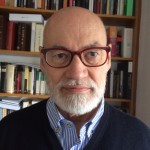
When I was born in 1950, life expectancy at birth was 65 years. I have now reached the 65-year mark and as such, according to the data, I should be starting to lose expectations. Fortunately, in recent years, medicine, health and lifestyles have improved and my reviewed life expectancy has increased, according to data from Idescat, by 20 years. This means that I have gained one year of life for every 3 years I have lived. That’s not bad! I am delighted with the figures, but there is one thing that worries me. That thing is called healthy life expectancy. This is calculated by combining mortality data which gives us life expectancy, together with morbidity data which can tell us how many years we are expected to be unhealthy. My healthy life expectancy is currently 12 years, in other words, I can spend 12 of the 20 years I have remaining healthy, and 8 unhealthy. Statistically speaking, that is.
And what diseases face me on the road ahead? Well the most serious life-threatening diseases are cardiovascular disease and cancer. Suffice to say that many of the gains we have achieved in terms of extending life expectancy have come from reducing cardiovascular mortality. Cancer is also in decline, thanks to improvements and research in health. Certain types of cancer are less common due to the decrease in the number of people who smoke. For example, lung cancer is declining in men but has increased in women. For other forms of cancer, there is now very effective treatment and medication that can relegate the disease to chronic status. However, despite the fact that these diseases are serious, they do not have us visiting the doctor every day. We visit the doctor complaining from high blood pressure, cholesterol, diabetes, heart failure, etc. Some of these diseases are linked to the largest public health problem today: obesity. Tobacco or alcohol are no longer the major public health problems, but instead it is obesity. The number of cases of are growing day by day and it is considered to be the root cause of certain diseases such as diabetes.
Obesity is caused by two factors: overeating and taking less exercise than we should. Most modern developments result in us doing less exercise: elevators, escalators, teleconferencing, etc., and a lot of the media input encourage us to eat more or to consume sugary drinks. The combination of these factors mean that today around 15% of the Catalan population is obese.
The most common disease in people over 65 years old today is called polypharmacy, in other words, the use of more than three types of medications on a daily basis. In many cases this can be more than 10 different drugs and there are some people who have a daily consumption of 20 drugs. Each drug is prescribed to address a particular health problem, and health problems have multiplied. Nowadays, we don’t have only one disease, we have several, and each disease has its own therapeutic arsenal. Doctors must monitor patients, not only to control the disease, but also to ensure they prescribe drugs that do not have adverse effects on the patient’s other conditions. When visiting our GP, they have to take into account a number of parameters, and a visit to the hospital can mean appointments with a number of different medical services. One of the most serious health issues today is derived from interactions between different drugs or therapeutic activities that can act as obstacles to each other.
Medicine has come a long way since I was born. We have discovered so much about diseases and we now have much more effective medicines and surgery to cure many conditions. Nevertheless, medicine is poorly prepared for the new patient: elderly, with several diseases, some mental (Alzheimer’s, dementia, depression, etc.), without family, and prescribed a lot of different medication. Because the system cannot cope with the complexity, they end up sending the patient to an elderly care nursing home.
For several years, voices have been raised in healthcare circles demanding the reorganization of services to meet the demands of these new patients. These voices have difficulty making themselves heard and it is very difficult to change the way health services operate. We have reduced mortality thanks to specialization and superspecilisation with diseases being defined with greater precision, but the patient has been reduced to a sack of diseases. The new medical perspective asks to view the patient as a whole and not only each one of the diseases they suffer from. There is still much work to do.
The current paradox is that we have never been so healthy and at the same time, we have never been so sick. Never before have we been able to live for so long in good health and never before have we lived so long with so many diseases to trouble us, to restrict us and make us dependent on health services. Faced with this situation, health services must adapt and patients must take a more active role in caring for their diseases.
Post written by Bohígas (@bohigasl), economist.





